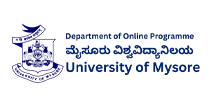Best Psychology Courses in India: UG, PG, Diplomas & More
Do you wonder how mental health professionals manage to know so much about human behaviour? In an era where emotional intelligence and mental health are increasingly being prioritized, psychology has emerged as one of the most important fields of study, both scientifically and socially.Thus, in India, with the increasing emphasis on mental health awareness, the demand for qualified psychology professionals has also grown sharply. Correspondingly, as colleges and universities respond to the need for psychology programs in diverse contexts and career pathways, the number of psychology degree programs has quickly increased.
Regardless of whether you prefer clinical mental health, are interested in why people behave the way they do at work, or just want to learn more about the brain, there is a psychology program for you.
In this blog, we are going to ask you to consider the options available for psychology in India, as well as some popular recent specializations, best colleges, eligibility requirements, and career options to help you find your first step in this new and exciting area.
Why Pursue a Psychology Degree in India?
.png)
Psychology as a field in India is no longer limited to clinical work or academia—it is now a developing and multidisciplinary field that connects directly with education, healthcare, business, sports, law, and technology. There is growing awareness about how mental health affects our lives, and this has led to an increase in demand for trained professionals in both the public and private sectors.
The diversity of culture and society we encounter in India was and still is a reasonable basis for study. Thus, psychology education in India has a unique preparation because students learn to understand and apply psychological principles in various social and cultural contexts.
There is also an emerging consciousness in India of having many accredited institutions with structured education programs in psychology, with many including research, internship, and placement opportunities. Coupled with the increase in online education and digital mental health platforms, we are now seeing a variety of ways to pursue education in psychology.
Ultimately, if you want a degree that is fulfilling, intellectually engaging, and socially responsible, then psychology in India has a variety of options.
Types of Psychology Courses in India
Psychology education in India is offered across different levels of education, giving students the ability to start at any point, directly after leaving school or post-graduation. Let’s look at each of these categories:.jpg)
Undergraduate Courses
BA and BSc
These are 3-year degree courses that are designed to teach students the basic concepts in areas such as cognitive psychology, developmental psychology, abnormal psychology, and research methods.- Eligibility: 10+2 in any stream, although some colleges favour science or humanities for studies.
- Popular Degrees: BA Psychology, BSc Psychology
- Entry level: Assistant counsellor, HR associate, or research intern.
Postgraduate Courses
MA and MSc
These are 2-year courses that enable students to specialize in one or more areas of psychology, such as clinical psychology, counselling, or even organizational psychology. There is also practical training, case studies, and a research project.- Eligibility: Graduation with Psychology or a related subject.
- Popular Degrees: MA Psychology, MSc Psychology
Diploma and Certificate Courses
These are short courses (6 months to 1 year) that focus on building skills in a particular area of psychology or skill, such as child psychology, counselling techniques, or mental health awareness.- Eligibility: Varies per course (generally, available to all students).
- Offered by: Universities, NGOs, and online platforms, such as Coursera, Udemy, and NIOS.
PG Diploma in Guidance & Counselling and Child Psychology and Mental Health
These 1-year postgraduate diplomas and diploma courses are offered by universities in India to increase the academic excellence of psychology students, along with practical exposure in the chosen field of the diploma program. These courses are sometimes offered through online or distance learning.- Offered by: IGNOU, Jamia CDOE, and many state universities.
Certificate Courses in Psychology
This few weeks-long or 6 months program is great if you want basic information or skills in an area. It includes topics such as Positive Psychology, Criminal Psychology, Cognitive Behaviour Therapy (CBT), and Counselling Methods- Offered by: NIMHANS, Udemy, Coursera (partnered with an Indian university), and some IGNOU programs.
Doctorate Programs
M.Phil & Ph.D. in Psychology
The M.Phil. and Ph.D. in Psychology are research-based programs intended for advanced studies for individuals interested in some aspect of clinical practice, psychology instruction, or pursuits in psychological research. Often, the M.Phil is a prerequisite to being licensed as a clinical psychologist in India.- Eligibility: Post-Graduation in psychology + entrance test or interview
- Expected Duration: M.Phil – 2 years; Ph.D. – 3 to 5 years
- Job Outcomes: Research scholar, clinical psychologist, teacher
Popular Areas of Specialization in Psychology
Psychology is a broad field, and so students are given the opportunity to specialize in areas of interest and areas of work. The opportunity to specialize allows professionals the chance to really focus on narrow areas of interest and research on human behaviour, while giving students exciting opportunities for work..jpg)
Clinical Psychology
Clinical psychologists assess, diagnose, and treat mental health disorders. The aim is to teach students for work in a hospital, private clinic, rehabilitation centre, or the courts or protection services.Essential Skills: Therapeutic instruments, assessments, and plans
Occupational Outcomes: Clinical Psychologist, Mental Health Rehabilitation Counsellor, Psychiatric Assistant
Counselling Psychology
Counselling psychologists help people cope with daily life, relationship issues, career transitions, and emotional struggles. Clinical psychologists concern themselves with diagnosis and action plans for mental health, while counselling psychologists generally concern themselves with non-medically based mental health considerations.- Essential Skills: active listening, developing solutions, managing stress.
- Occupational Outcomes: Career Counsellor, School Counsellor, Marriage and Family Counsellor
Industrial/Organizational Psychology
This specialty is concerned with using psychology in the workplace. People who work in this field generally target a variety of workplace issues, such as increasing employee satisfaction, improving productivity levels, and facilitating organizational change.- Key Skills: Employee behaviour evaluation, human resource management, organizational development.
- Career Ideas: HR Consultant, Organizational Development Practitioner, Recruitment Officer.
Educational Psychology
Educational psychologists usually work in schools or universities, where they apply psychology to promote learning, suggest strategies for managing disability during learning, and deal with behaviour issues.- Key Skills: Learning strategies, child development, special education strategies.
- Career Ideas: Educational Psychologist, Special Education Teacher, School Principal.
Forensic Psychology
Forensic psychologists apply psychology in the context of criminal behaviour and the overall crime investigation process. They work with local law enforcement agencies to develop an understanding of what motivates someone to commit a crime, conduct psychological assessments, and participate in legal processes.- Key Skills: Criminal behaviour assessments, legal knowledge, forensic assessments.
- Career Ideas: Forensic Psychologist, Crime Researcher, Expert Witness.
Sports Psychology
Sports psychologists typically work with athletes and teams to help them maximize their performance during competitions, help them cope with issues caused by the stress that comes with sport, and help them maintain mental toughness in competitive situations.- Key Skills: Dealing with performance anxiety, motivational techniques, group and team processes.
- Career Ideas: Sports Psychologist, Mental Coach, Counsellor (Rehabilitation).
Neuropsychology
Neuropsychologists perform a diversity of functions; however, in general, they study the relationship between the brain and behaviour, and they often work with patients with neurological conditions or brain injuries.- Key Skills: Brain imaging, cognitive assessments, neuropsychological assessments.
- Career Ideas: Neuropsychologist.
Best Psychology Colleges and Universities in India
If you want to start a career in psychology, it is crucial to choose the right college. Below are some of the best colleges or universities in India, offering a psychology course, and they include a mix of online, distance, and on-campus courses..jpg)
Amity University (Online and On-Campus)
- Courses Offered - BA Psychology and MA Psychology (Both Online and Regular Options)
Amity offers UGC approved degrees, an international-level curriculum, an advanced LMS (Learning Management System), and placement opportunities. Amity's online programs are designed for those students who want the benefits of online education without compromising academic integrity. The university has experience in offering case studies, industry projects, and psychological tools as part of its teaching.
IGNOU (Indira Gandhi National Open University)
- Courses Offered - BA Psychology, MA Psychology (Length-Program)
No other institution, public or private, in India has been as successful in sponsoring open and distance learning as IGNOU. They offer the lowest tuition fees for the type of educational qualification you gain, and it is a government-accredited university that has a nationwide reach. Their courses contain a mix of university-level academic theory and sections of application through assignments and End-term exams. The university offers very good options for professionals who are pursuing their degree and offers a unique opportunity for students to complete their degrees from remote locations.
Jamia Millia Islamia – Centre for Distance and Online Education (CDOE)
- Programmes Offered: BA Psychology (Distance Mode)
Jamia Millia Islamia is a central university with NAAC A++ level accreditation and a strong academic base. In distance learning, the main highlights are academic rigour, cultural inclusion, and affordability, along with well-developed study materials and learner support centres.
Christ University, Bengaluru
- Programmes Available: BA/BSc Psychology, MSc Clinical Psychology, MPhil
A research-based environment, experiential learning, and a strong emphasis on student development through leadership and community engagement make Christ University stand out among other institutions. Psychology students will also engage with practical learning through lab sessions, field visits, or clinical internships.
University of Delhi (DU)
- Courses Offered: BA (Hons) Psychology, MA Psychology
DU is one of the most reputed public universities in India, and affiliated colleges such as Lady Shri Ram, Gargi, and Jesus and Mary College standout for their academic exposure, solid faculty, and engaged student-based research. Aside from alumni backing and a strong placement record, there are many reasons to see DU as the first choice for the aspiring psychologist.
Career Paths After Completing Psychology Courses in India
Completing a degree in psychology opens a lot of doors for you to explore fulfilling career opportunities with high impact across many sectors, including health and social care, education, business, and even law and sports. Depending on your area of specialization and the academic level of your qualification (degree, master's, and doctorate), you can work in both clinical and non-clinical professions..jpg)
1. Clinical Psychologist
Work in private practice, in a mental health clinic or hospital, and identify, diagnose, treat, and prevent mental health issues. Generally, you will need a master's degree in psychology (or an equivalent) along with an M.Phil or license.
2. Counselling Psychologist
Provide emotional and mental health support to people in educational settings (schools and colleges) and private practice to get an assessment of support to assist clients in managing personal, academic issues, and career-related personal development or change, and to find coping strategies.
3. HR/Organisational Psychologist
Apply psychological theory, practice, and principles in organisations to enhance wellbeing, satisfaction, and performance at work, as well as provide theories of change for organisational development. This is a popular area within a corporate context.
4. School Counsellor/Educational Psychologist
Assist students in the academic and emotional aspects of their development in a school or educational context by identifying learning difficulties in areas such as speech and literacy development and promoting the students' mental health and well-being.
5. Forensic Psychologist
Work in collaboration with police or criminal justice agencies in relation to evaluating criminal behaviour, assist with investigations, and present testimony in court from an expert psychological perspective.
6. Sports Psychologist
Assists sports teams and individual athletes to perform at their best while coping with the pressures of competition, building resilience, coping with competition stressors, and establishing positive coping strategies.
7. Rehabilitation Counsellor
Work with individuals recovering from trauma, physical injury, or substance abuse problems to help them return to society and a meaningful existence.
8. Academic/Research
A common option for those who want to work in a university, think-tank, research agencies, or policy-making organizations. Suitable for those who want to work in academic or scholarly activities and who are interested in psychological developments.
Conclusion
Whether you are at the start of your psychology journey or looking to deepen your knowledge, there is plenty of opportunity available to you today in India. You have the option of online or distance learning, the option of research-led, postgraduate degrees, or flexible certificate programs, and much more.
What is important is that, when deciding on a course, you pick something that resonates with your interests and career goals. Are you thinking of a clinical role in which you will help with mental health? Or does applying psychology in the corporate world sound better for you? Whatever your aspirations are, the right course can lead to an interesting career. You have top universities, such as Amity and Jamia, who will be offering you different ways to study, you have an increasing demand in the workforce for mental health professionals, and there are so many more available pathways for you.
Now is the time to jump in! If you have read anything in this article, it should be that you have options to check out, compare course offerings, and you can choose whatever suits your interests best and take your full potential forward. Psychology is much more than an academic subject; it is about understanding people, making lives better, and personally or professionally developing yourself.
Frequently Asked Questions
Q1. Can I study psychology online in India?
Yes, many universities such as Amity, IGNOU, and Jamia CDOE offer courses through online and distance learning programs that are University Grants Commission (UGC) approved.
Q2. Do I need a background in science to study psychology?
No, students from any stream can study psychology after 12th grade, although some universities may prefer students with a science or humanities background.
Q3. What is the best course to become a psychologist?
Typically, a BA/BSc in Psychology, then an MA/MSc and an M.Phil or Ph.D., depending on what you wish to specialize in.
Q4. What is the use of diploma and certificate courses in psychology?
Yes, these courses are wonderful for gaining specific skills; they are especially valuable if you want to learn to counsel, child psychology, or work in related mental health support roles.
Q5. What is the average salary after studying psychology in India?
Entry-level roles may start anywhere from ₹3–5 LPA, with experience and specialization, this could very quickly rise to some ₹8–15 LPA and even more.
Trending Posts
-
15 Top Online MBA Colleges in India in 2025
-
Online Education vs. Distance Education: Benefits and Limitations
-
CSIR Shyama Prasad Mukherjee Fellowship: Eligibility, Stipend & Application Guide (2025)
-
7 Major Changes Introduced by UGC You Need to Know About
-
Top Online MBA Entrance Exams Every Banking Aspirant Should Know About
-
LLM in 2025: Benefits, Career Opportunities, and What’s in It for You
-
DBA in India & Abroad: Top Careers, Salaries & Best Universities
-
Do You Really Need UGC-NET for a Ph.D in 2025? Let’s Break It Down
-
What Comes After B.Com? The Ultimate Guide to Career-Building Courses in 2025
-
Mukherjee Fellowship – Everything You Need to Know
-
Top 10 In-Demand Courses after BBA for a Successful Career in 2025
-
Top PhD Scholarship and Fellowship Opportunities in India 2025
-
High-Paying Government Jobs After B.Com. You Should Know About
-
Sharda University CDOE: Courses, Admission Process, Tuition Fees
-
Trending and High-Impact MBA Project Topics You Should Consider






































































